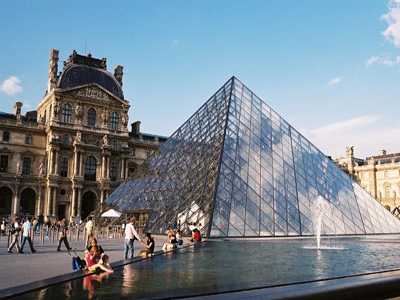| Official Name: | French Republic | Population: | 58.3 million people |
| Capital: | Paris | State language: | French |
| Form of Government: | Republic | Administrative division: | France is divided into 26 administrative regions |
| International phone code: | 33 | Time difference with Moscow: | -2 hours |
| Monetary unit: | Euro (EUR) | Rate: | 1 EUR = 91.04 RUR |
EDUCATIONAL INSTITUTIONS
- Year-Round Language Courses
- Summer and Vacation Programs
- Secondary Education and Pre-University Preparation
- Undergraduate Courses
- Postgraduate Courses and MBA
- Professional Training and Internships

INFORMATION ABOUT FRANCE AND ITS EDUCATION SYSTEM
Basic information about France.
France lies on the western fringe of the European continent. The country’s territory also includes the island of Corsica in the Mediterranean and several overseas territories. France shares common borders with Belgium, Luxembourg and Germany in the north and northeast, Switzerland, Italy, and Monaco in the east, and Spain and Andorra in the south. Its landmass is washed by the Mediterranean in the southeast and it is open to the Atlantic Ocean in the west. The country’s capital is Paris. France has a population of 60.4 million. The official language is French.
Higher education in France.
The higher education system in France is based on a common European principle and built around the number of years a person can study after finishing school and receiving a degree called baccalaureat francais. Briefly, the three higher education degrees require the following qualifications: Bachelors degree (Baccalaureat) + three years of study at an institution of higher learning = Licentiates degree (Licence, 180 credits ECTS); Bachelors degree + five years of study at an institution of higher learning = Masters degree (Master, 300 credits ECTS); and Bachelors degree + eight years of study = Doctoral degree (Doctorat, PhD). These three degrees, Licentiate, Masters, and PhD, are the basic stages of learning in the French higher education system.
France has 87 state-financed universities, where a wide variety of subjects are taught. Doctorate studies have traditionally been widely open to foreign researchers; in fact, one in every four PhD dissertations comes from a foreign doctorate scholar.
Higher schools (Grandes Ecoles) are specific French educational institutions on a par with universities. These educational institutions very carefully select students, since they offer very high standard education. Programmes are tailored to suit the students who want to receive a basic Masters degree (after five years of study) or intermediate degrees, such as an international standard Bachelors degree (after three years of training), or a Masters degree in natural sciences (Master of Science, requiring four or five years of study), or a Specialist Masters degree (Mastere Specialise, six years of learning).
Specialized schools supplement the French higher education system, focussing on professions such as the arts, fashion, architecture, tourism, and hotel business. The French education system is distinct, among other things, in that educational institutions receive solid financial support from the government, which means that French and foreign students do not pay the actual cost of tuition. For example, annual enrolment in universities costs from €135 to 700; studying at higher and specialized schools costs significantly more, from €4,000 to 15,000 a year.

 +7 (495) 228 03 00
+7 (495) 228 03 00
 France
France


